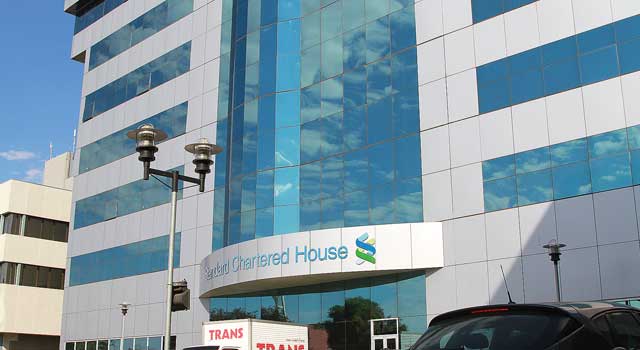The banking sector in Botswana, which has turned massive profits for years, is seeing a decline in profitability. The regulator, Bank of Botswana (BoB), in the Banking Supervision Annual Report for 2014, points to a 16.7 percent decrease in after tax profit for the sector from P1.8 billion for the period ended December 31, 2013 to P1.5 billion for the period ended December 2014. “This contrasted with a positive growth rate of 0.1 percent in 2013,” BoB stated in the report.
According to the Bank of Botswana (BoB), all the profitability indicators showed a downward trend. “Return on Equity (ROE) and Return on Average Total Assets (ROAA) [decreased] partly due to a 16.7 percent decline in net profit after tax. ROE, which is a measure of the efficient use of shareholders’ funds, decreased from 27.4 percent in 2013 to 19.1 percent in 2014,” stated the central bank, further noting that ROAA also decreased to 2.3 percent in December 2014 from the 3 percent registered in December 2013. However, the BoB said despite their downward trend, the profitability ratios remained strong and above international norms for comparable sized banks.
“The Net Interest Income to Average Total Assets (ATA) ratio decreased to 5.1 percent in December 2014, from 6 percent in December 2013, which reflects the banking sector’s declining efficiency in the employment of banks’ assets to generate income,” noted the central bank. On a positive note, according to BoB, the Non-Interest Income to Total Income ratio increased to 39.6 percent in 2014 from the previous year’s 36.4 percent.
The report states that net interest margin dropped to 5.8 percent in 2014, down from 8.2 percent recorded in 2012 and 2013. “The net [interest] spread also decreased to 6.2 percent in the year under review, compared to 7.9 percent in 2013. The decline in net spread was due to the 3.2 percent reduction in interest on loans and advances, compared to a 3.9 percent increase in interest paid on deposits,” sated the BoB.
The central bank cited “the prevailing low interest rate environment in the country coupled with a 31.2 percent increase in the total provisions charge for loan impairments to P760 million in December 2014 compared to P579.4 million in 2013, [as having] contributed to the decline in profits.”
The year being reviewed by the report, 2014, saw a difficult business environment with the central bank having imposed a two year moratorium on bank charges, reduced lending rates, and high defaults rate.
The BoB imposed a two-year moratorium on any upward adjustment of bank charges and fees with effect from January last year. In August, the central bank lowered its main lending rate by 50 basis points to 6% following a 1 percentage point reduction in February. Due to over indebtedness of, especially, the households, commercial banks also saw a spike in defaults. Standard Chartered Bank registered a P1.4 million impairment charge in fiscal year 2014. Stanbic Bank reported P104 million in defaults; Banc ABC impairment charge rose from P42 million in 2013 to P110 million in 2014. Between the half year periods ended December 2013 and 2014, impairments for First National Bank Botswana shot up 55% from P56.7 million to P87.9 million; and Barclays Bank Botswana had reported an impairment charge of P150.4 million.

